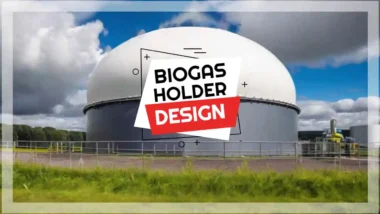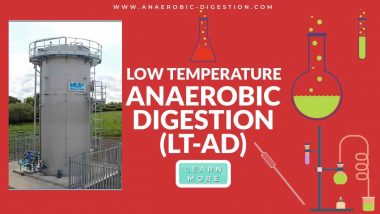While ADBA has just published their Budget Day 10-Point UK Biogas Roadmap we say that even without government support in the budget, a huge new biogas plant started by Toyota on Deeside, suggests that the UK AD industry is doing well!
For the news of a new Deeside AD plant scroll down to read more, after the 10-point ADBA UK Biogas Roadmap directly below:
ADBA UK Biogas Roadmap Press Release – 30 October 2024:
Anaerobic Digestion Industry Trade Association ADBA Reacts to Autumn Budget 2024
PRESS RELEASE: Anaerobic Digestion Industry Trade Association ADBA Reacts to Autumn Budget 2024 Following the publication of the first Labour Government's budget, Chris Huhne, Chair of the Anaerobic Digestion and Bioresources Association (ADBA) and former Energy and Climate Change Secretary, said:.
“Every business will have its own take on the mix of tax rises, but the continued emphasis on green growth is welcome. It would have been even better if there had been no mixed messages with the freeze on fuel duty, which modestly disadvantages the sector as people look at switching from diesel to biomethane as a fuel”.
“As the renewable sector with the second fastest global growth potential after solar, we will be engaging with the Government and Make UK to ensure a full appreciation of the growth opportunity that biogas and biomethane offer across the UK.”
In recent months, ADBA has been stressing its ten key campaigning goals on behalf of the green gas sector of renewables, and says that they could all be easily implemented in the first year of a new government by using secondary legislation:
ADBA’s 10-point UK biogas roadmap
#1 Build 1,000 new biogas plants to shield consumers from sky-high prices
As we saw following the Russian invasion of Ukraine almost two years ago now, the UK is at the mercy of fossil gas prices. In early 2022, gas prices soared to a peak of 642p/therm, sending us into a spiralling energy crisis and a scramble to reduce our reliance on Russian gas imports. Insisting that green gas makes up part of gas supply and backing new plants with green gas contracts for difference, would protect consumers and increase energy security. We can build 1,000 new biogas plants by 2030 to protect us all from sky-high energy prices.
#2 Keep supermarket shelves stocked by using UK-made biofertiliser
Synthetic fertiliser is made through the energy-intensive Haber-Bosch process which requires feed in of large amounts of fossil fuels. Alongside the rise of oil and gas prices, synthetic fertiliser prices have risen, too. Moreover, synthetic fertiliser is a significant contributor to soil health degradation and the disruption of the vital Nitrogen and Phosphorus cycles. Digestate, a nutrient-rich biofertiliser, is one of several valuable AD byproducts. By substituting synthetic fertiliser for biofertiliser and increasing market support for its use, we reach #2: We can close the loop of the circular economy, protect farmers against volatile prices of synthetic fertiliser, and increase UK food security by keeping food shelves stocked.
#3 Clean up our rivers and beaches by treating farm waste with AD
AD can help tackle water pollution and keep our waterways clean. Agricultural waste is often improperly disposed of and managed. Run-off of nutrients, pathogens, and contaminants from animal farms leads to dangerous pollution which causes eutrophication, dead zones, and disruptions to biodiversity. On-farm AD provides a closed-loop system for properly storing and recycling animal waste. On-farm AD is a win-win-win that protects our waterways, offers solutions for livestock waste management, and provides farmers with essential green gas energy to keep their farms running.
#4 Create 18,000 new skilled jobs across the UK
Number four addresses jobs and the growth of the sector. The IEA published its Annual Energy Outlook for 2023, forecasting that the biogas sector will grow anywhere between 8 and 22% by 2030 i accordance with targets in the UK Biogas Roadmap. At the minimum, that would forecast 500 new plants creating home-grown green gas. It is already apparent how quickly AD can be scaled up and new plants can be brought online. At ADBA, we are calling for the development of at least 1000 new plants in that time, and with it, creating 18,000 new skilled jobs across the country.
#5 Stop the Emissions Trading Scheme penalising green gas
Notorious methane is a fast-acting greenhouse gas that heats the atmosphere at considerably higher rates than CO2. However, the UK Emissions Trading Scheme (UK-ETS) penalises biomethane as if it were fossil gas, meaning that no greenhouse gas mitigation benefits are being offered to biogas plants, which abate methane emissions. Therefore, we are calling for allowances to stop penalising green gas and help industry comply the UK Biogas Roadmap.
#6 UK Biogas Roadmap Pledge to establish a plan to decarbonise farming and use farm wastes
Farming is too important to ignore in our effort to decarbonise. Using the energy stored in farm wastes is key. Agriculture is responsible for considerable amounts of the UK’s overall greenhouse gas emissions, at 11% in 2020. Even more dramatically, agriculture contributes to 69% of the UK’s nitrous oxide emissions and 48% of its methane emissions, two powerful greenhouse gases with global warming potentials significantly higher than CO2. The CCC has already acknowledged that AD is a necessary part of agricultural decarbonisation. Now is the time to act.
#7 Ease local planning with guidance to every local authority
Local planning must be eased through guidance to every local authority. Many local authorities have never approved a green gas plant before and are unfamiliar with the process. Thus, we are calling upon the government for its support in acknowledging AD as a vital part of reaching its net zero goals. To do that, it must issue standardized guidance to councils on new AD plants, treating them as the critical infrastructure they are.
#8 Ease permitting and grid connections
Permitting delays are amongst the greatest challenges for the industry. The process at its slowest can take several years. To change that, the Environment Agency and other permitting bodies need adequate funding and staffing. Our eighth point calls for a streamlined permitting process through increased funding to slash these permitting delays from years to months and increase application approvals overall. Connections to the gas and electricity grids must be made as easy as possible to develop the green gas industry fully. This is essential for new plants. ADBA stands four square with other renewable organisations in pressing the government to boost investment in our grid infrastructure to ensure that the most value can be extracted from green gas.
#9 Ban food waste going to landfills and mandate weekly food waste collections
The UK produces millions of tonnes of food waste each year. Too much still goes to landfill. Defra’s recently backed separate food waste collections in the coming years, but this process has been pushed back continuously. After a series of broken promises leaving local authorities expectant and disappointed, we need to be staunch in our position that this roll-out sees no further delays. There should be absolutely no food waste going to landfills, and this valuable feedstock should be taken advantage of by sending it to be recycled through AD to produce valuable green gas.
#10 Curb climate change from powerful methane
Methane is a powerful greenhouse gas with a shorter atmospheric lifespan than CO2 but a much higher global warming potential. The temperature response of methane is incredibly dramatic over a short period, compared to carbon dioxide which warms slower but lingers longer. Many of the previous ten steps demonstrate how AD can mitigate methane emissions by preventing the gas from being emitted from rotting organic wastes. By scaling up green gas, we can ensure that the UK meets its Global Methane Pledge goals and accomplish #11: help curb climate change by stopping methane in its tracks.
- UK Biogas Roadmap PR ENDS-

Toyota Deeside Breaks Ground on Green Revolution
A New Era of Sustainable Manufacturing
Toyota Motor Manufacturing UK (TMUK) is embarking on a groundbreaking project to transform its Deeside engine plant into a beacon of sustainable manufacturing. The recent groundbreaking ceremony marked the beginning of a state-of-the-art anaerobic digester, which will revolutionize the plant's energy consumption.
Construction on the new waste-to-energy plant will begin next month, and when completed, it will send green electricity and gas directly to TMUK-D via underground cabling and pipes, replacing the current grid supply. The £282 million privately backed company was created by D SPV, ABRDN, and PWC, and is being built by bio build.
A Waste-to-Energy Marvel This innovative waste-to-energy plant will harness the power of nature to generate clean energy. By processing approximately 180,000 tonnes of waste annually, the digester will produce biomethane, a sustainable fuel that will replace the plant's current natural gas supply. This transition will significantly reduce CO2 emissions, contributing to a greener future and helping the industry to follow the UK Biogas Roadmap.
A Circular Economy in Action The project extends beyond energy generation. The digester will also produce valuable compost, which will be distributed to local farmers, fostering a circular economy and supporting sustainable agricultural practices.
Leading the Way to a Carbon-Neutral Future This ambitious initiative aligns with Toyota's global commitment to carbon neutrality by 2050. By pioneering this cutting-edge technology, TMUK-D aims to set a new standard for sustainable manufacturing in the automotive industry. The plant's transformation will not only benefit the local community but also inspire others to embrace eco-friendly practices.





